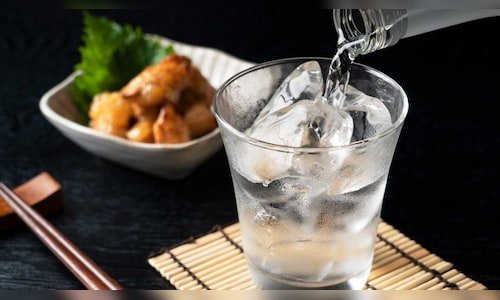A high-level committee, tasked with identifying revenue-enhancing strategies, submitted a comprehensive report recommending reforms in liquor production, licensing, and tax collection.
Drawing inspiration from successful practices in other states, the committee proposed a combination of policy changes and technological advancements to streamline operations and combat illicit activities.
The Cabinet has sanctioned the establishment of an AI-powered integrated control room to monitor distilleries, liquor manufacturers, and wholesalers across Maharashtra. This system is intended to enhance transparency and efficiency in the regulation of the liquor trade.
To reinforce the department’s infrastructure, a new divisional office will be established in Mumbai and its suburbs, alongside additional superintendent offices in Thane, Pune, Nashik, Nagpur, and Ahilyanagar. These offices are expected to strengthen oversight and enforcement, addressing issues such as smuggling and the sale of illicit liquor.
Significant hikes in excise duties have also been approved. For Indian Made Foreign Liquor (IMFL) with a declared production value of up to ₹260 per bulk litre, the excise duty will increase from three times to 4.5 times the production value.
Similarly, the duty on country liquor will rise from ₹180 to ₹205 per proof litre. These adjustments are expected to impact retail prices, which have been set at:
- Country liquor: ₹80
- Maharashtra Made Liquor (MML): ₹148
- IMFL: ₹205
- Premium foreign liquor: ₹360
The introduction of MML, a grain-based foreign liquor exclusive to Maharashtra producers, represents a notable reform. Manufacturers will be required to register new brands under this category, fostering local production and potentially reducing dependence on external liquor sources.
Additionally, the Cabinet has approved provisions allowing sealed foreign liquor sales licences (FL-2) and hotel/restaurant licences (FL-3) to operate under conducting agreements, subject to additional fees of 15% and 10% of the annual licence fee, respectively.
To support these reforms, the Cabinet has sanctioned 1,223 new posts, comprising 744 operational and 479 supervisory roles, aimed at strengthening the department’s capacity. These measures are expected to generate an additional ₹14,000 crore annually through excise duties and sales taxes, significantly boosting state revenues.
While these initiatives are intended to address fiscal deficits and support welfare schemes such as the Ladki Bahin Yojana, they have sparked debate. Critics, including opposition leaders, argue that incentivising liquor sales may have social repercussions.
However, the government insists that stricter enforcement and modernised systems will curb illegal trade while maximising revenue. With these reforms, Maharashtra is set to transform its excise landscape, balancing economic objectives with effective regulatory oversight.
